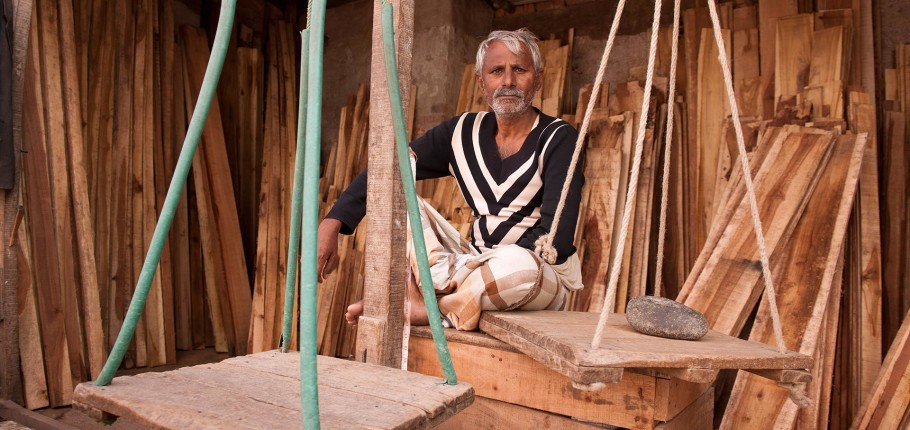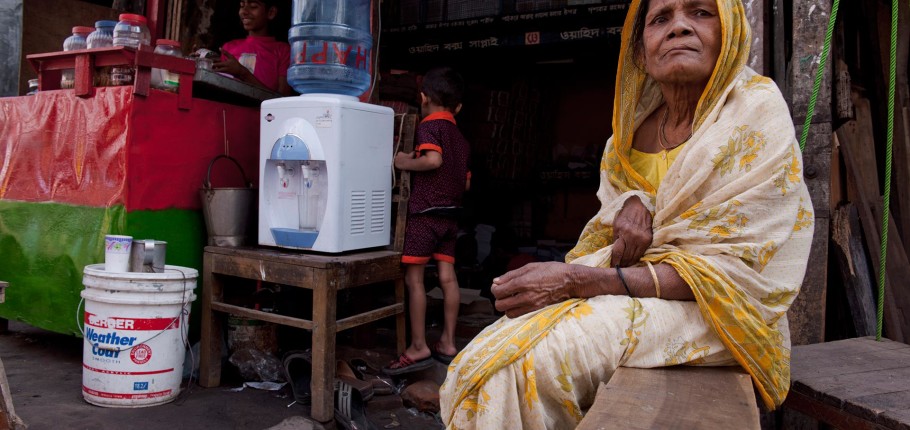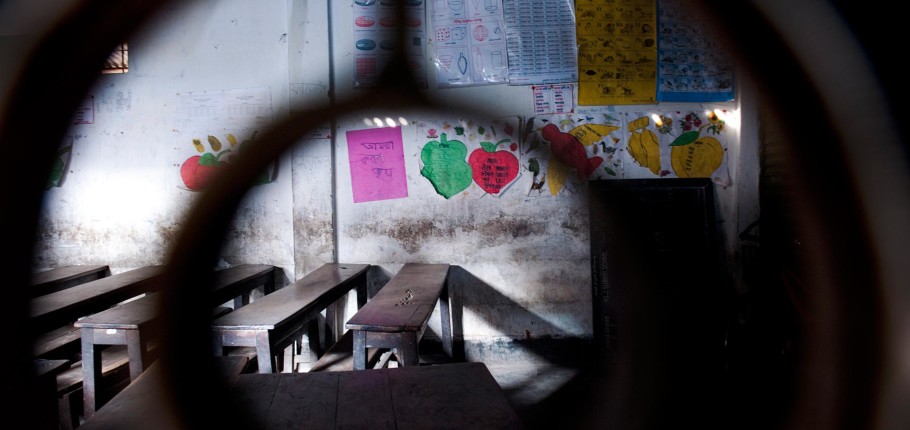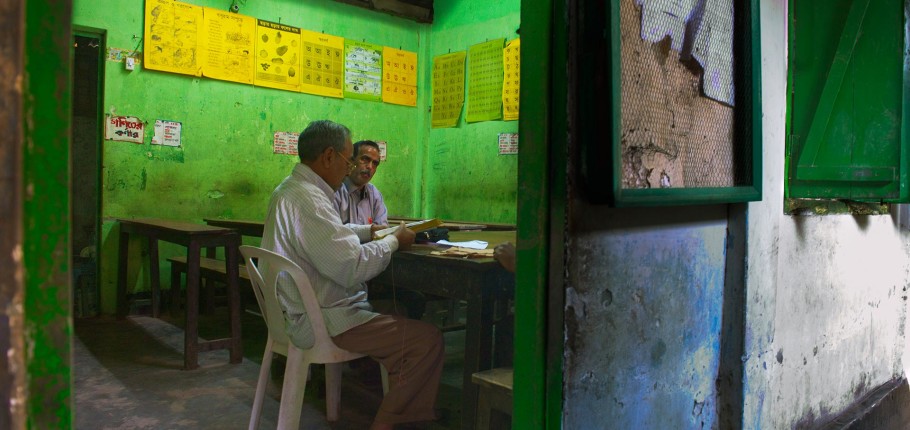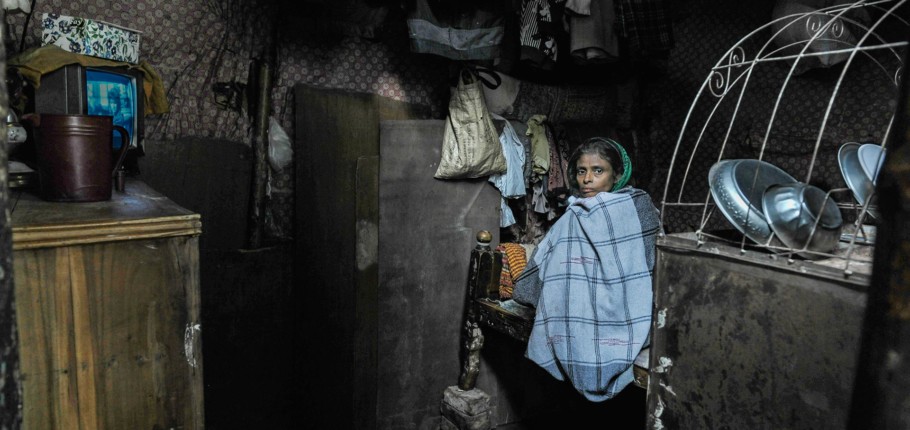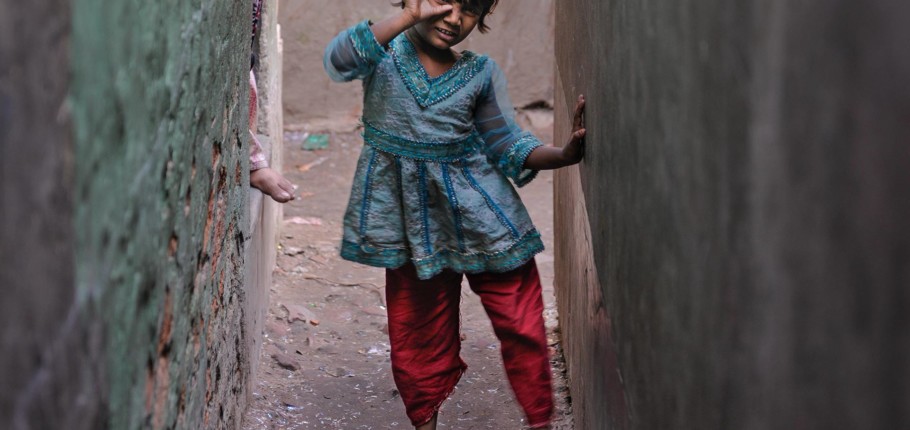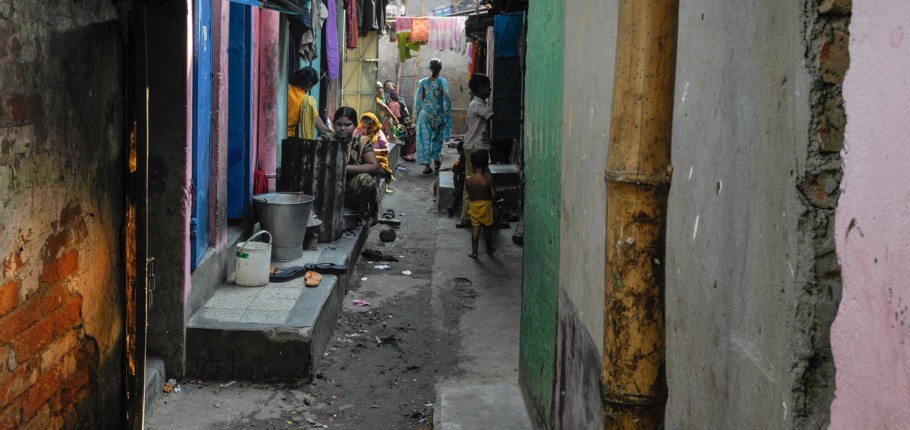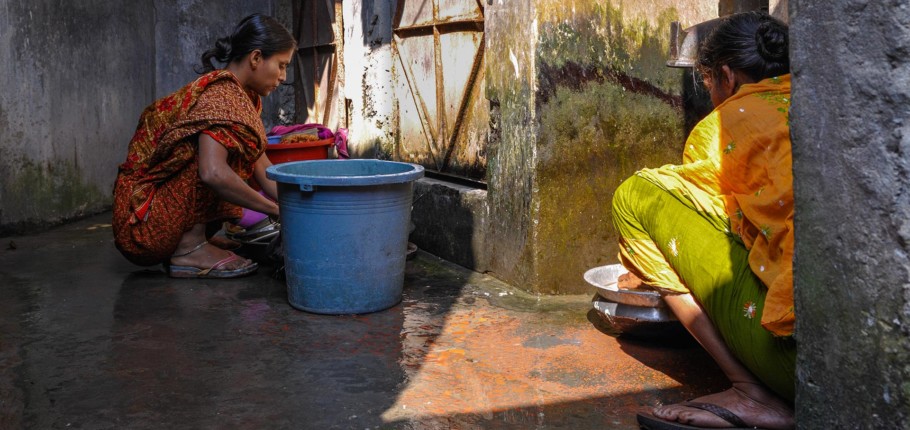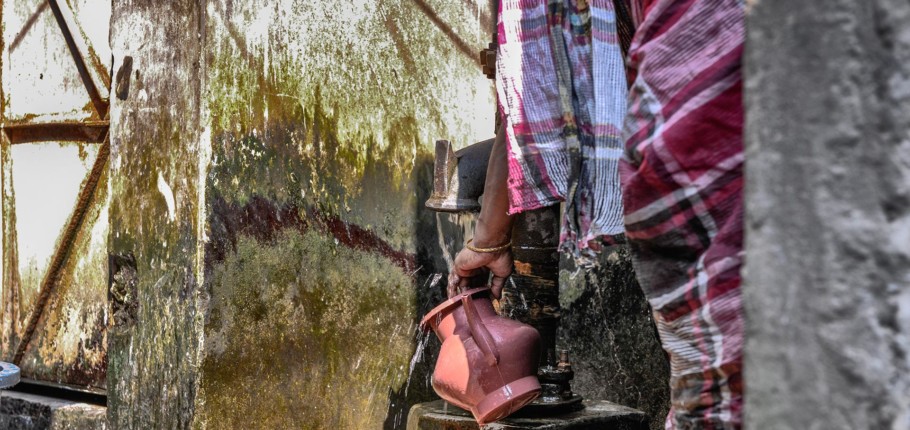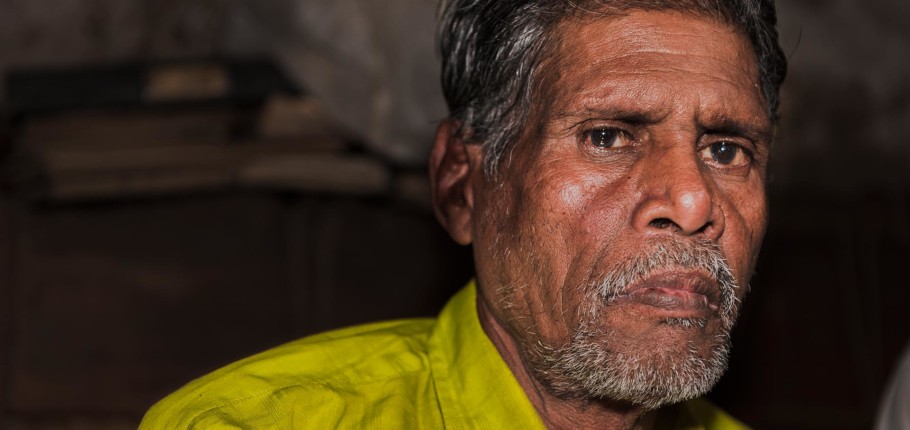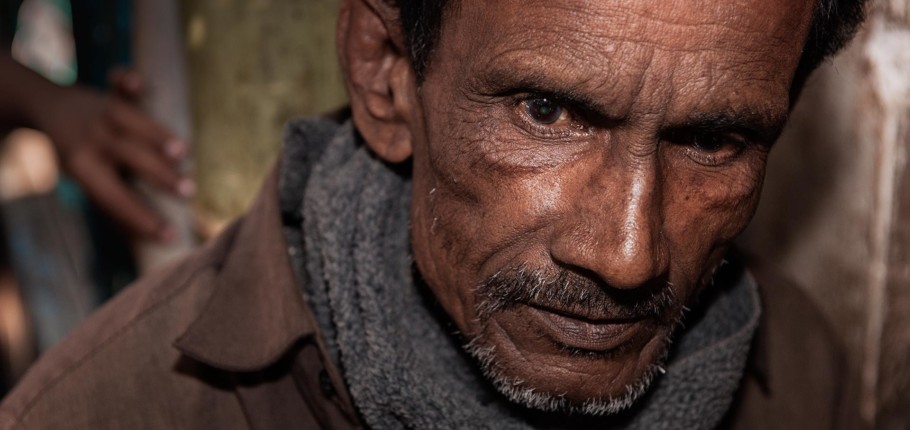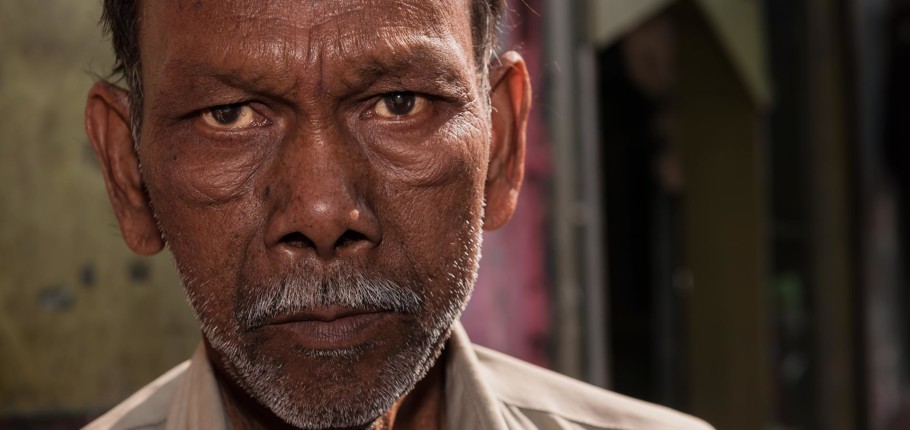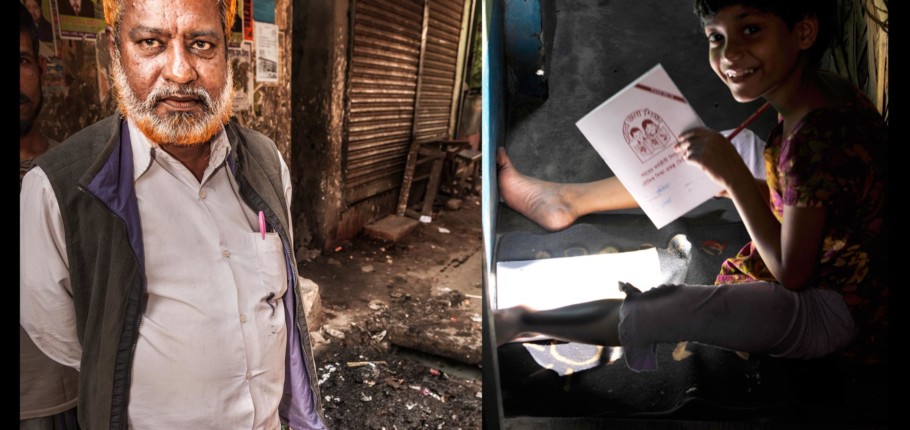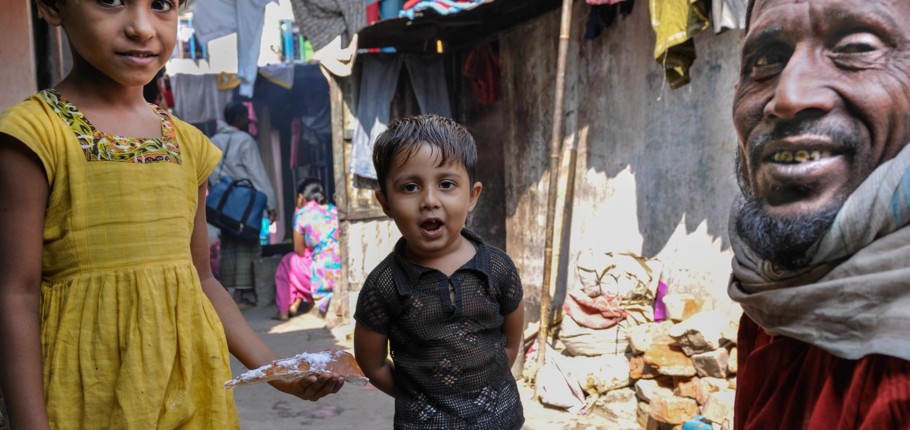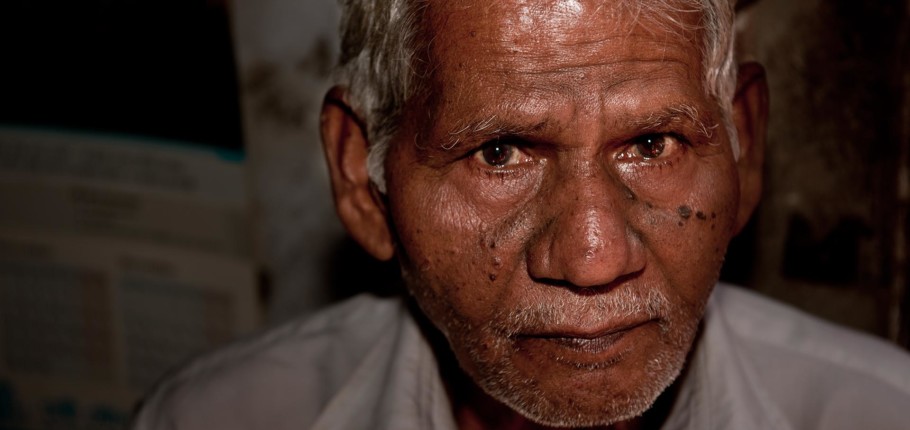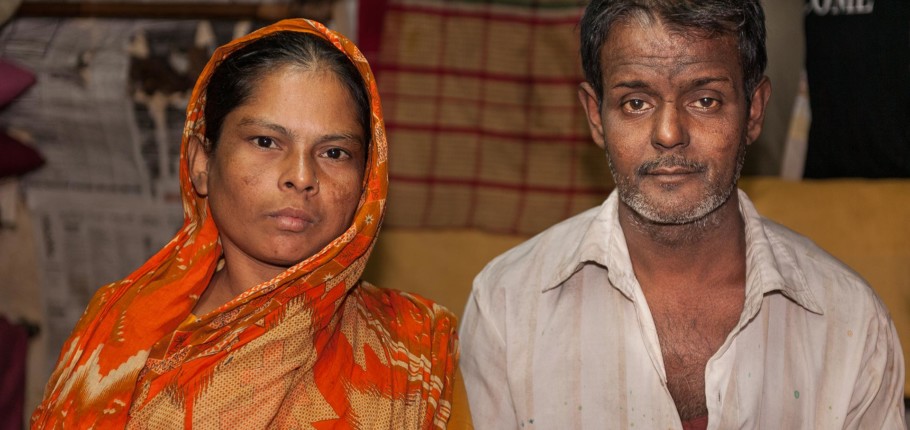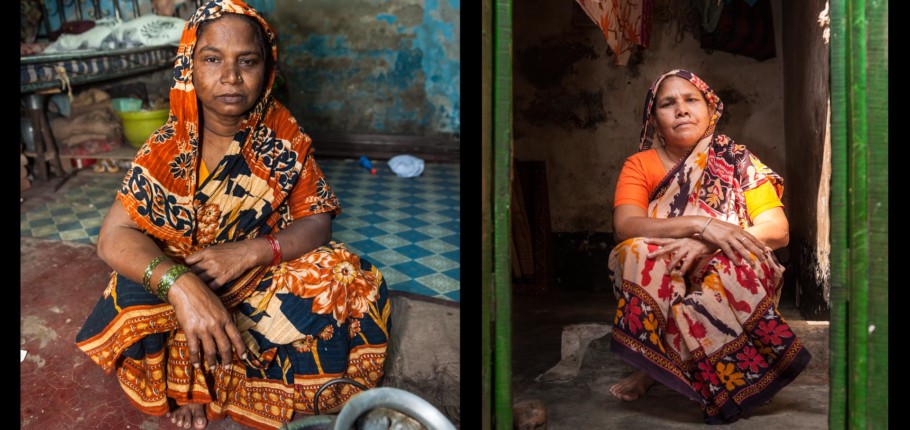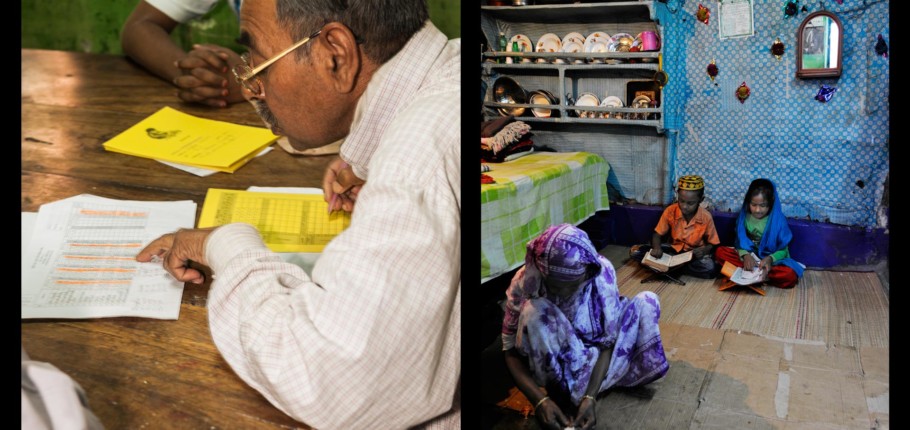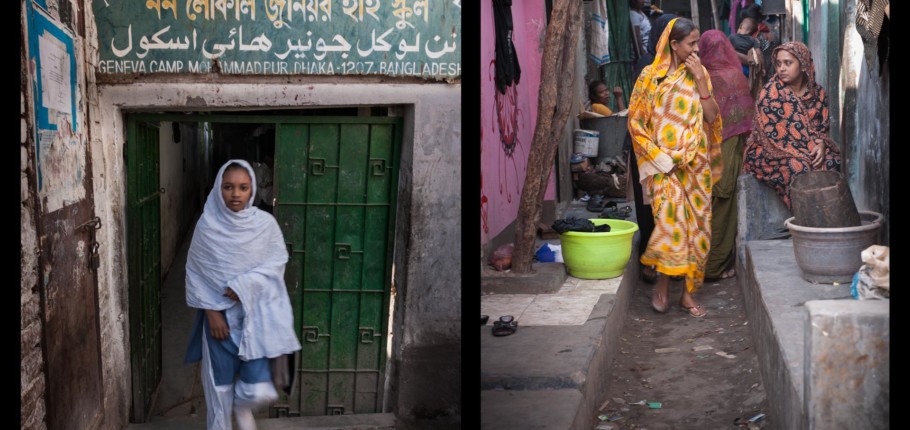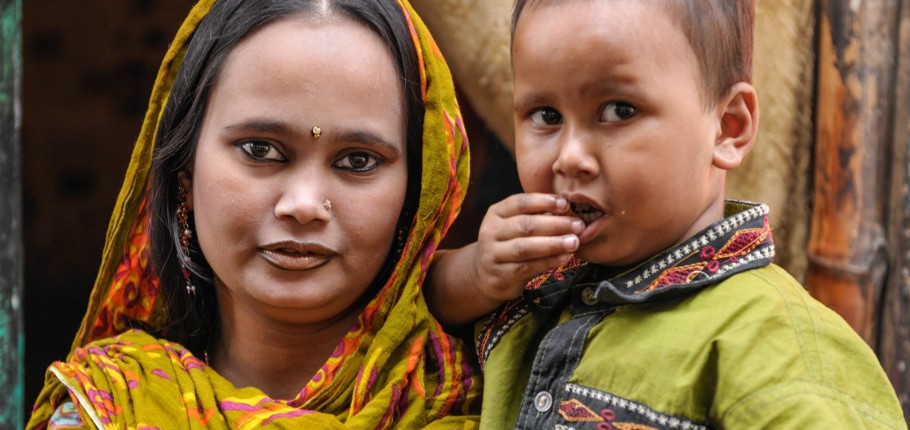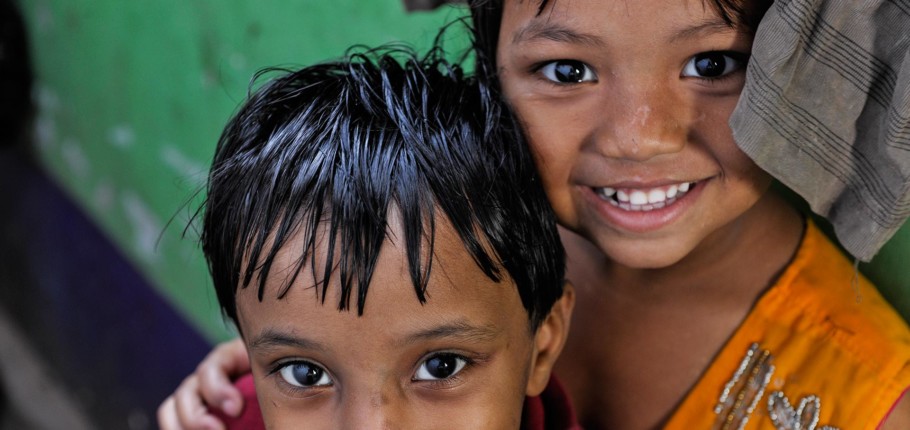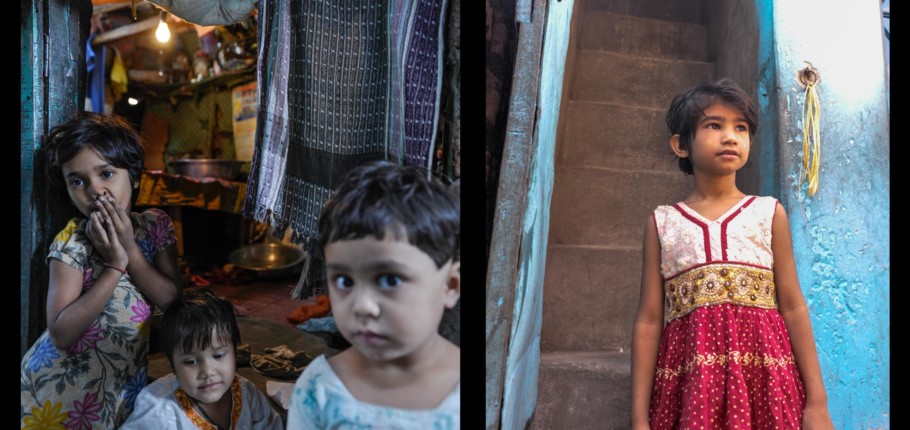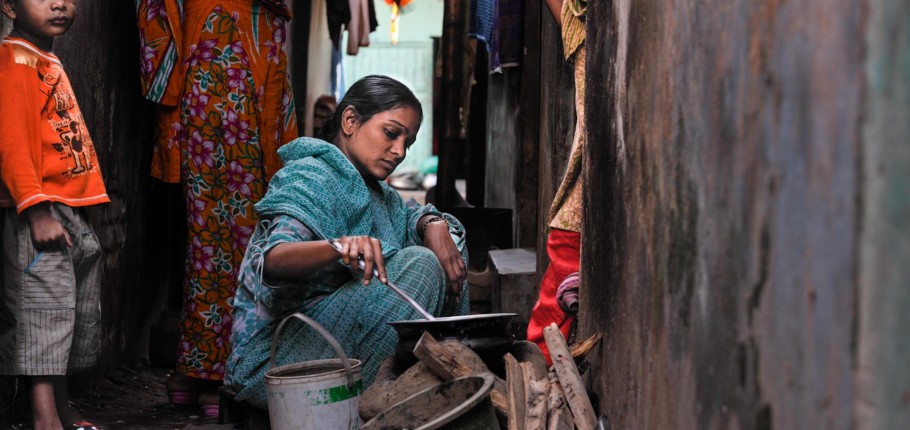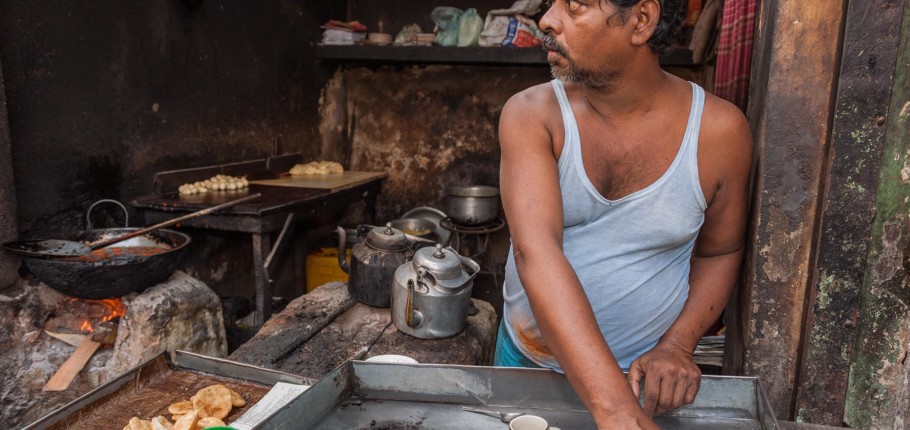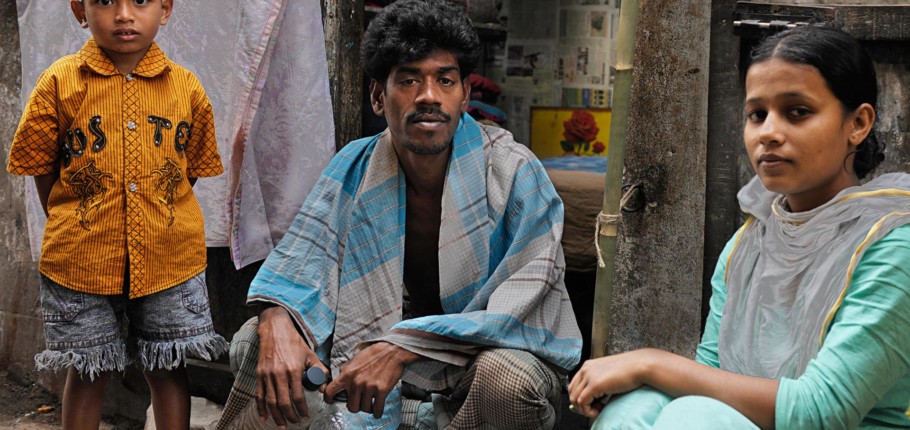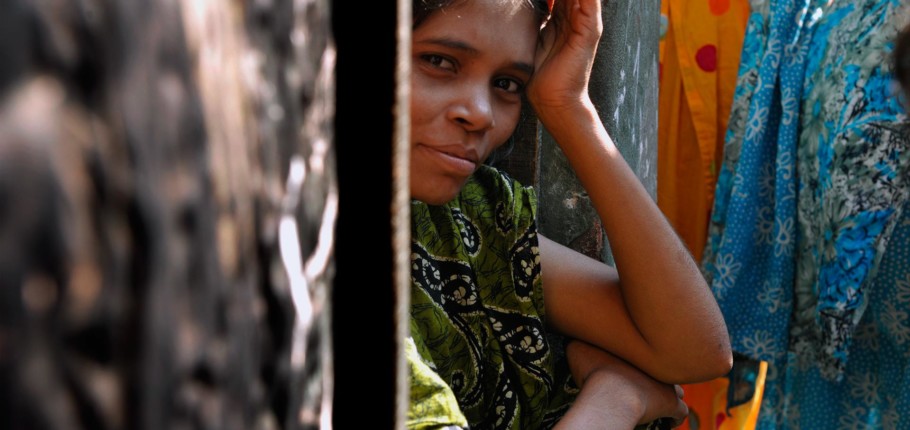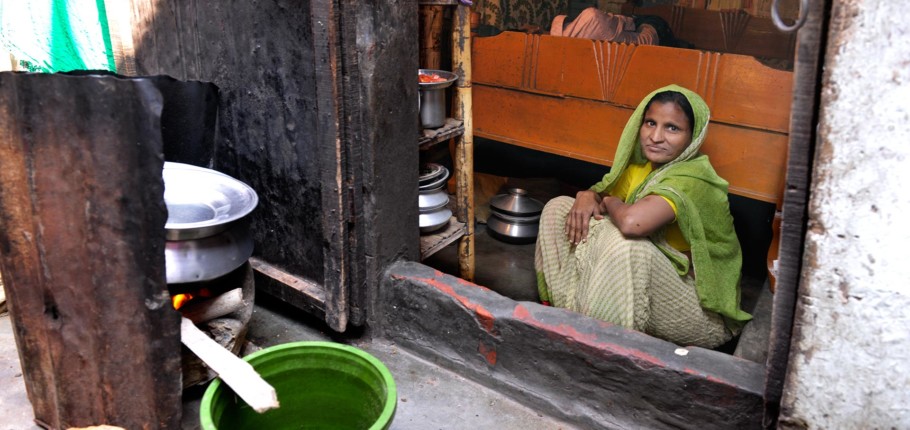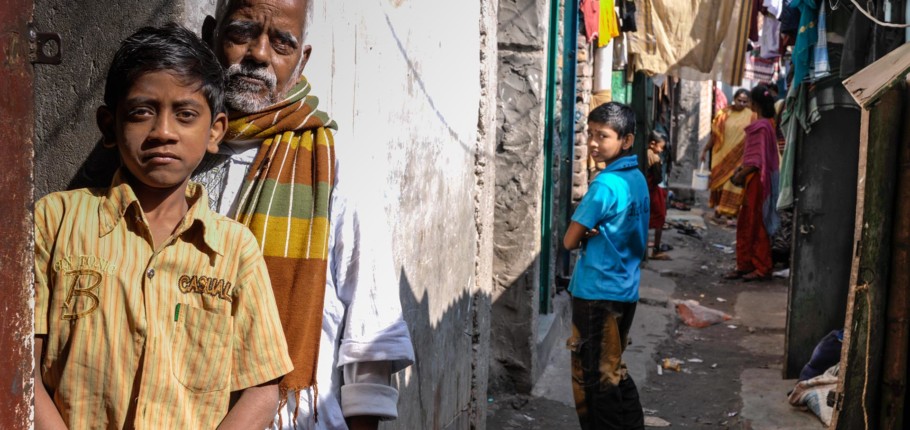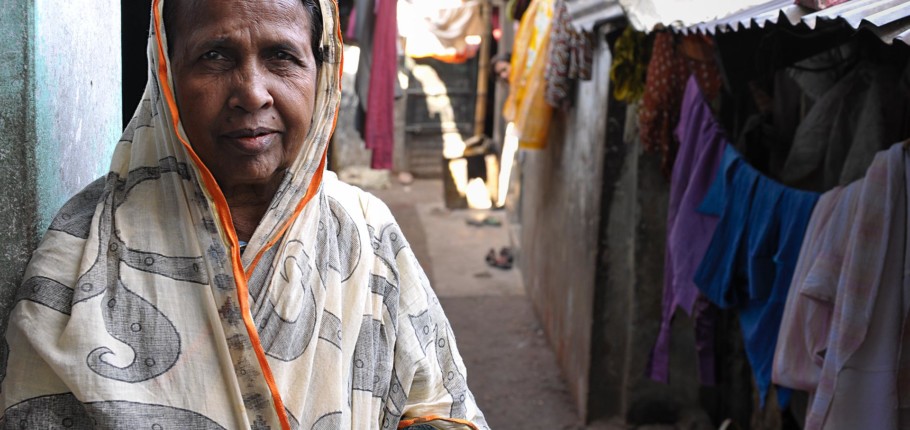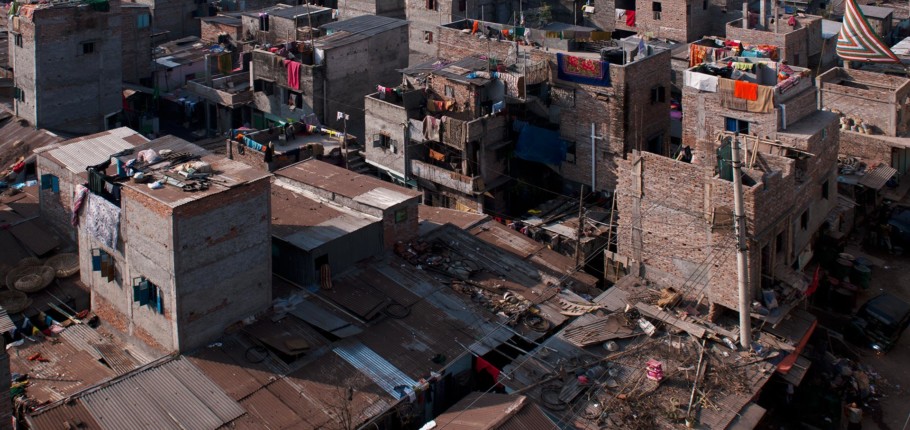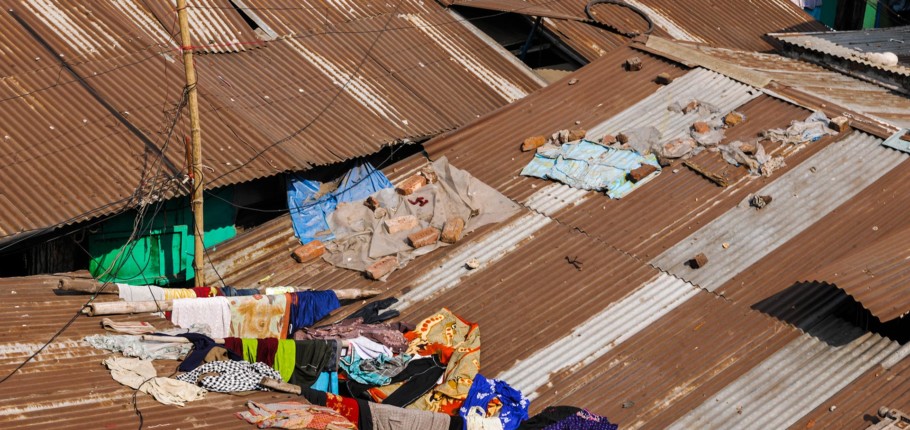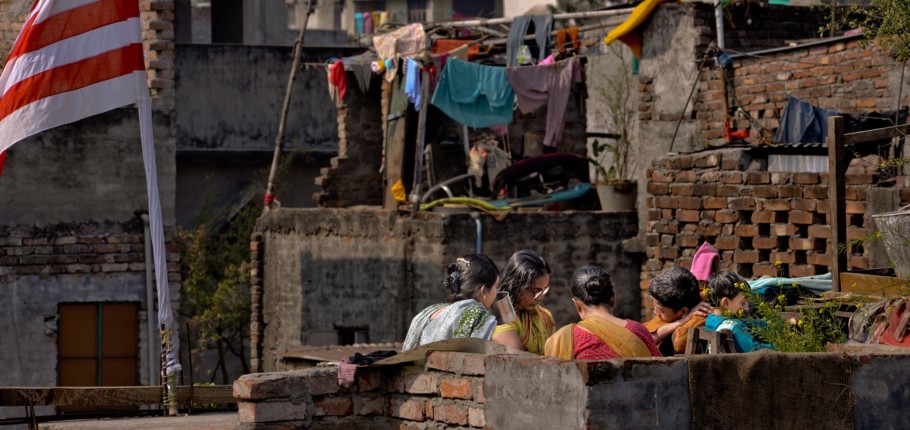It was the end of December 2010 when I arrived in Dhaka, Bangladesh. I was visiting my friend Shahidul Alam, of DRIK, Patshala and Majority World fame to experience and absorb all the wonderful things that he had achieved in a very brief period of time. During conversations with some of the photo-journalists working at DRIK, somehow the subject of Biharis came about and I suggested a visit to the Mohammadpur camp right in the heart of Dhaka. Perhaps it was idle curiosity, or perhaps it was the voyeur photographer in me that convinced one of my dear Bengali photographer friend to accompany me to the Mohammadpur Geneva Camp right in the heart of Dhaka.
A brief cycle rickshaw ride later we had arrived safely, why I say safely is simply because you have to experience a cycle rickshaw ride in Dhaka amongst the intensely crowded streets with seats that require a certain dexterity on the part of your rear end to stay in one place, while trying to absorb everything that is happening around you.
The first thing that my photographer/guide friend did was to track down a Bihari acquaintance of his who resided within the confines of the camp. As it is in the South Asian communities, everybody knows everybody and within a few minutes we had not only tracked the young man down but also found a very generous host and guide. Suddenly, my Bengali friend was the outsider. I because of knowledge of Urdu was immediately at home and everyone was comfortable. On further explanations that I was coming from Canada, though with my origins firmly in Pakistan with heritage distinctly in Bihar suddenly lifted any and all barriers that could have ever existed. I was one of them, I was a Bihari who had done well for himself, I was the star attraction for the moment. I had been given a Carte Blanche. I was invited into their homes, traditional hospitality despite their meager resources was showered upon me, it was touching and in the same moment a very sad experience being a witness to the abject destitution. I felt deeply ashamed of myself for never having been aware of this reality.
It was at this moment that I first started to think very consciously about what it must be like to be one of the people living under these sub-human conditions. I myself of immigrant background was born in Rawalpindi, Pakistan. My parents immigrated from India post 1947. Despite the fact that I grew up in Rawalpindi and absorbed all the cultural nuances, spoke the local language; I was always identified as a “Mohajir” (immigrant). I never directly experienced any biases or prejudices during my formative years, though there was always a sense of being the outsider. In later years, I did assimilate to the point where I was one of the locals and then did I become acutely aware of the biases directed towards the Urdu speaking ethnicity since now I was mistakenly regarded as one of the their own, son of the soil.
Then I moved to Canada, an immigrant yet once again. This is a whole different story, perhaps to be indulged at some other time.
When we talk about the Bihari community stranded in Bangladesh, one needs to look at them from all these perspectives to have some level of understanding and empathy with what they have gone through and what it must be like to be stuck in this state of self imposed apathy. They first left their homes in India at the time of separation from India and creation of Pakistan in 1947, some moved to West Pakistan and some to East Pakistan which then came to be Bangladesh in 1971. These Urdu speaking people were distinctly aligned with the power players of the Pakistani politics based out of the western provinces and during the Bangladesh independence movement of 1971, continued to be loyal to those they considered to be partners in the western provinces. The Urdu speaking community was never considered a part of the Bengali society and they made little effort to assimilate themselves within the local cultures and communities. The majority of the urdu speaking made little or no effort to learn Bengali, the language of the majority; they isolated themselves as the superior race, the masters and people in power. This was naturally going to engender a lot of resentment
After spending an extended period of time trying to research online any and all information possibly available on the stateless in Bangladesh, commonly referred to as Biharis, particularly in view of the fact that there had been news that the Bangladesh government had offered citizenship during 2008 to these stateless people. I was hard pressed to find any reports indicating that the realities may have changed and improved in view of the offering of citizenship, other than the fact that there are still approximately 300,000 stranded individuals of Pakistani origins living in various camps spread across Bangladesh. I was a witness to the unchanged situation two years from the date of the announcement at least within the confines of Geneva Camp of Mohammadpur in Dhaka.
Shamed by my own guilt and excited by the prospect of photographing a continuing disaster, I wandered the smelly, open-drained and dark streets of the ghetto with my local guide, Mohammed Yunus, a resident of this camp. I should mention that prior to arriving in Dhaka, Bangladesh, I had just spent 5 months in Karachi teaching at a premier art school and at the same time had the opportunity of visiting and photographing the deplorable human conditions in the largest city of Pakistan, Karachi. I frequented many slums but this one, the Geneva Camp at Mohammadpur was special for it reeked of the contemporary elite politics and cold inhumanity that Pakistanis are not only shy of confronting but also vehemently in total denial. The living conditions would put any half-concerned human to shame. Not until my arrival here had I ever remotely understood how the wounds of 1971 were festering for hundreds and thousands of men, women and children who have waited for all these years to attain identity and citizenship of Pakistan. The Pakistani state soon forgot about their existence as its ethnic politics dominated the policy commitments of the current leaders. And for the Bangladeshis these were the “traitors” who continued to wave Pakistani flags when the vast majority of East Pakistanis revolted against the excesses and the might of Pakistan army following the infamous army action of 1971.
This stranded Pakistani community also referred to as the Biharis in Bangladesh falls under no conventional identity, or category of international standard. They cannot be called refugees because they were not displaced from their homeland in the first place during the 1971 war of independence from Pakistan for Bangladesh. At the same they cannot be regarded as a minority because they never constituted a part of the Bangladeshi nation, since at the time of Bangladesh’s independence this large Urdu speaking population opted for Pakistan. Thus, technically they were outside their country, Pakistan.
These stranded Pakistanis are one of the largest and oldest communities of stateless people. Their predicament deserves more attention, since national identity is the most fundamental of human rights – national identity in itself allows an individual the right to have rights.
Their peculiar status defies the conventional definitions of the terms ‘refugee’ and ‘minority’ and has limitations in describing the Urdu speaking people of Pakistani origins in Bangladesh. International laws or international bodies, to this date, have proved to be ineffective either in extending humanitarian assistance or in the mediation efforts to solve the problem. It makes the future of this population uncertain, creates economic pressure, social insecurity and political sensitivities in the host country. Perhaps, we need to imagine ourselves, just for a brief moment in the so called refugee camps spread across Bangladesh and hope to see and feel, just for a moment, what the residents of these camps have not only had to endure for the last four decades but continue to do so with tremendous dignity, without much hope of any assistance from beyond. In South Asia we have made a royal mess of things first the Partition of India in 1947, then violence against Bangladeshis and our refusal to admit that we were wrong; and finally the insensitivity to those who are trapped between conflicting histories and ideologies.

